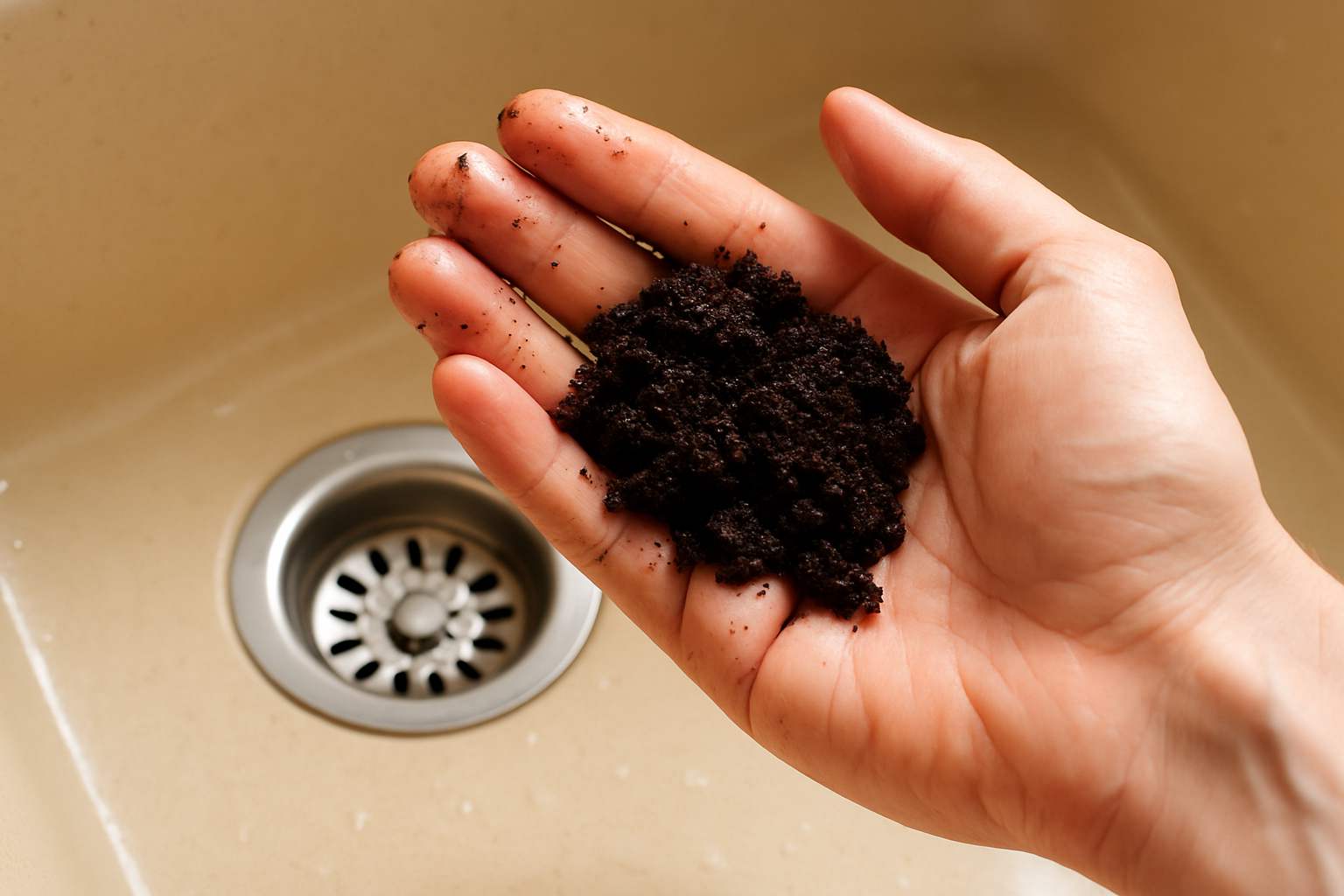For years, my grandma swore by one simple household hack: tossing used coffee grounds down the drain to keep pipes clean. She’d say, “It cleans everything and it’s free!” As someone who’s brewed countless pots of drip coffee—the kind that makes that satisfying “glug-glug” sound—I often followed her advice and emptied the grounds into my kitchen sink. But I started wondering, where exactly do these grounds go after the rinse? And more importantly, is this ancient wisdom really safe for our plumbing?
Curious and a bit cautious, I dug into whether coffee grounds in sinks are truly a smart, eco-friendly solution, or just a recipe for a clogged nightmare.
Why coffee grounds aren’t a miracle sink cleaner
Prune water: the surprising health benefits you didn’t know about
Coffee grounds have earned a reputation as a humble multitasker in eco-friendly homes. Beyond the kitchen drain, they deodorize refrigerators, scrub greasy pans, repel garden pests, and even brighten certain houseplants. Many DIY cleaning guides mention pouring a tablespoon or two of coffee grounds down the drain, followed by a flush of boiling water, promising that the grounds will “melt away grease” like magic.
Sounds great in theory, right?
Here’s the catch: coffee grounds are granular, heavy, and importantly, not soluble in water. This means if you don’t rinse them away thoroughly with plenty of hot water, they can clump together, especially when mixed with food scraps and grease. Over time, this buildup can actually block your pipes instead of clearing them.
If you’re a daily coffee drinker like me, pouring grounds into your sink morning after morning without careful rinsing can create a slow but stubborn clog that demands professional attention.
How to use coffee grounds safely around your home
Despite the risks with drains, coffee grounds remain a treasure trove of natural cleaning and gardening benefits—if used wisely. Here’s a quick guide on dos and don’ts:
This Japanese drink is amazing researchers with its powerful anti-inflammatory effect on arthritis
| How you use coffee grounds | Good idea? | Why |
|————————————|——————–|——————————————|
| In compost or garden beds | Yes | Adds nitrogen, repels some pests |
| As a natural skin scrub | Yes | Gently exfoliates, smells wonderful if you love coffee |
| In the fridge as a deodorizer | Yes | Absorbs bad odors effectively |
| Directly down the sink without water| No | Can clump and cause blockages |
| Down the sink with boiling water | Occasionally (rare)| Might help cut grease if rinsed well |
| Every day into the sink | No | Frequent use risks clogging |
The key takeaway? Coffee grounds can clean your pipes—but this should never be a daily habit or done without rinsing. Limit it to once or twice a month, and follow up immediately with lots of boiling water to wash everything down.
Why I switched to a safer homemade pipeline cleaner
Neither sudokus nor television: the best hobby after 70 to keep your mind sharp
After learning all this, I decided to change my approach. Instead of relying on coffee grounds alone, I now use a proven—and plumber-friendly—mix of boiling water, baking soda, and white vinegar. Together, this trio gently dissolves buildup without the risk of blockages lurking behind the scenes.
Plus, I’ve taken to collecting my coffee grounds for the garden or compost bin, where they add value instead of causing problems. It feels good knowing I’m putting those grounds to work naturally and sustainably.
Have you ever tried to unclog your sink with coffee grounds? Or do you swear by another household trick? I’m curious—what’s your experience been? Drop a comment below and let’s swap stories. Sometimes, simple wisdom from grandma meets modern science in surprising ways. And if you’ve made mistakes or discovered new hacks, we’re all ears! Sharing these little lessons can save someone else a headache down the line.
